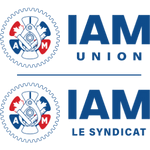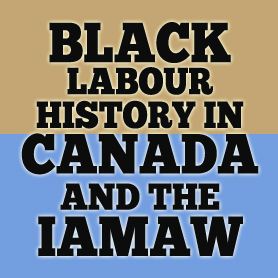

Women and African-Canadians entered the workforce in the highest numbers ever in 1940, during the Second Word War. Black employment grew by 150 percent by the end of the war.
Unions, however, were not so committed to the rights of non-white workers. Thirty-one American Federation of Labour (AFL) affiliates barred black members, as did the railroad brotherhoods. Many unions, including Congress of Industrial Organizations (CIO), had segregated locals. The International Association of Machinists barred blacks from becoming members.
In the United States, activists like A. Philip Randolph started unions for African-Americans, as most unions wouldn’t allow Blacks into membership. The Brotherhood of Sleeping Car Porters (BSCP) was the leader in promoting membership.
In Canada, the BSCP saw leadership from Stanley Grizzle. Born in 1918 in Toronto, to Jamaican immigrants, he was elected president of his union local, and pushed the Canadian Pacific Railway to open the management ranks to blacks. He also plunged into other causes and was a leader in Canada’s civil rights era of the 1950s, working with the Joint Labour Committee to Combat Racial Intolerance.
In 1959, Grizzle and Jack White (IBEW and the first Black Representative at CUPE) were the first Black Canadian candidates to run for election to the Legislative Assembly of Ontario for the Co-operative Commonwealth Federation (the predecessor to the New Democratic Party). In 1960, Grizzle went to work for the Ontario Labour Relations Board, and in 1978, he was appointed a Citizenship Judge.
Bromley Lloyd Armstrong (born 1926 in Jamaica) was active in the early civil rights era in Canada, beginning with his arrival in 1947. Armstrong was a committed union activist who worked to improve conditions for workers. He was also active in promoting equal rights for African-Canadians and was involved with the National Unity Association (NUA) in sit-ins in Dresden, Ontario restaurants that refused to serve blacks. Through his courage, the Ontario government brought two laws into place, the Fair Employment Practices Act and the Fair Accommodation Practices Act.
Roman Mayfield: When Roman hired into the Boeing Seattle plant in 1946, workers of colour were not allowed to join the Union. Roman still attended all Union meetings, but could not participate. The Union finally recognized minorities and Roman joined in 1950. Roman was an icon at the Grand Lodge Convention in San Francisco two years ago when a resolution was passed in his honour for the time when the IAM didn’t allow African Americans to belong to the Union. Times have changed — in part thanks to Roman’s hard work over the years.
Brother Mayfield gave his life to this Union being one of just a handful to participate in all five of our strikes. In each strike, he did far more than just walk the picket line, but took an active role — distributing strike checks, coordinating food to the picket lines, counselling others, and helping anywhere there was work to be done. Helping others was truly a way of life for this very compassionate individual.
At the 2004 Grand Lodge convention, the delegates voted unanimously to name one of the scholarships after Roman A. Mayfield, a 55-year member of District Lodge 751, now deceased. This is given to one of the scholarship recipients who best represent the spirit of volunteerism and the strong sense of service to their community that was a hallmark of Brother Mayfield.
Some notable Canadian members:
Charlie Phillipps was elected President of IAM Local Lodge 712 in Montreal in 1964 – the first African-Canadian to lead a local in Quebec, as well as in Canada.
Rod Reynolds was elected President of IAM Local Lodge 2113 in the late 1970s. He was the first African-Canadian to lead a local in Ontario. He retired in 2002.
Estella Green of IAM Local 2113 represented the IAM on OFL Women’s Committee. Sister Green still sits on the IAM Canadian National Human Rights and National Women’s Committees, despite being retired since 2002.
Henry Savage, current President of Local 2113, following in the footsteps of Brother Reynolds, was elected President of Local 2113 in 2004.
Fraser Hendricks LL 235 – has been a longstanding member of the Executive Board
Mike Daniel LL 2309 represented his local in2007
The history of Black Canadians spans four hundred years and includes the full range of human experience: slavery, abolition, homesteading, military service, the civil rights movement. African-Canadians have also made remarkable contributions to Canadian culture, education, science, urban life, the labour movement, politics and the social justice.
While the IAM celebrates Black History Month with passion, we also know we have a long way to go. The history of negative attitudes, unequal treatment and racism still, sadly, continues today.
Being Machinists, we have a responsibility to fair treatment of all our members, and of all citizens in our society. If we can accomplish this, then we can be assured that workers everywhere can also be treated with the dignity and respect they deserve.
We are trying to build our own Black history in the IAMAW and if you know a member in your local or district that has actively participated in our Union please forward their name, a brief description of their activism and if possible a picture. Together we will build our past and our future!
In solidarity,
Heather Kelley
IAM Canada National Human Rights and National Women’s Committees

